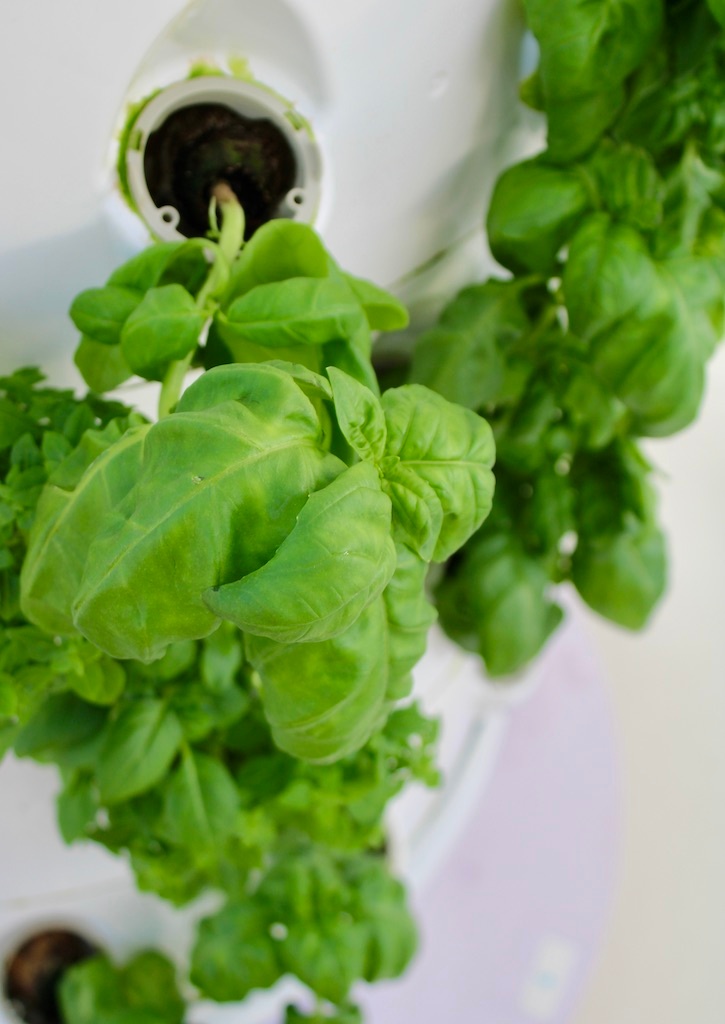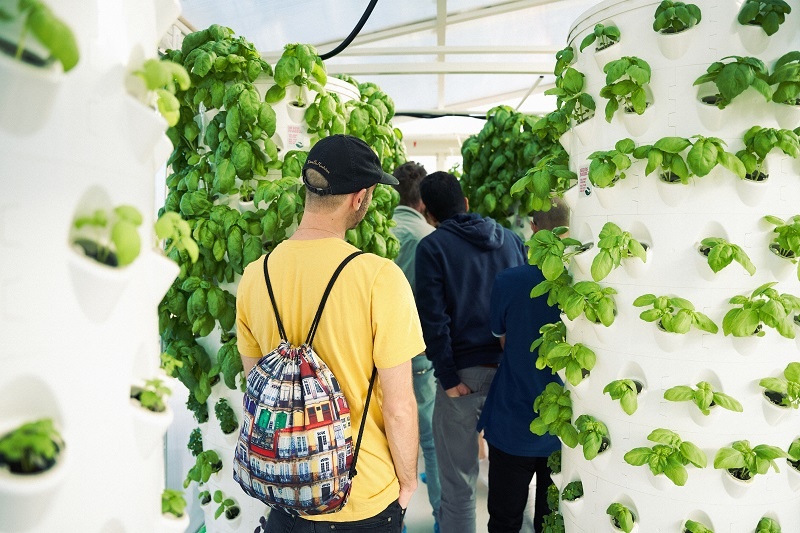Sustainability in Hydroponics: Cultivating a Greener Future
Hydroponics are becoming more and more relevant in a world grappling with food security challenges, climate change, and dwindling natural resources. Innovative agricultural practices have become a beacon of hope. Hydroponics, a soilless farming technique, has emerged as a promising solution to address these pressing issues.

The Hydroponic Evolution
Hydroponics is a method of growing plants without soil, where nutrient-rich water solutions are used to deliver essential minerals and elements directly to the plant roots.
This technique offers numerous advantages over traditional soil-based agriculture, making it an attractive choice for sustainable farming.
Here are some key aspects of sustainability in hydroponics:
1. Efficient Resource Utilization
One of the primary sustainability benefits of hydroponics is its efficient use of resources. Unlike conventional farming, which often requires large amounts of water and land, hydroponics uses significantly less of both.
The controlled environment of hydroponic systems allows for precise water and nutrient management, reducing water waste and nutrient runoff. This efficiency not only conserves resources but also minimizes the environmental impact of agriculture.
2. Climate Resilience
As the global climate becomes increasingly unpredictable, traditional agriculture faces mounting challenges. Hydroponic systems, on the other hand, provide a controlled environment that is less susceptible to the adverse effects of extreme weather events. This resilience ensures a more stable food supply, even in the face of climate-related disruptions.
3. Reduced Chemical Usage
Hydroponic systems rely on nutrient solutions to nourish plants, reducing the need for chemical pesticides and herbicides. This environmentally friendly approach minimizes chemical contamination of soil and water, contributing to cleaner ecosystems and healthier communities.
4. Year-Round Production
Traditional agriculture is often limited by seasonal changes and geographical location. Hydroponics transcends these limitations, enabling year-round production in virtually any location. This consistent supply of fresh produce can reduce the need for long-distance transportation, further lowering carbon emissions associated with food distribution.
5. Space Efficiency
Hydroponic systems are remarkably space-efficient, making them suitable for urban farming. Vertical farming, a concept Raiz Vertical Farms specializes in, maximizes the use of vertical space, allowing for high-density cultivation in urban areas. This approach not only reduces the need for extensive farmland but also promotes localized food production, cutting down on transportation-related emissions.
Raiz Vertical Farms: Leading the Charge
Raiz Vertical Farms is at the forefront of sustainable hydroponic agriculture, embodying the principles of environmental responsibility and innovation. As part of the vertical farming revolution, our company is committed to advancing sustainability in hydroponics and driving positive change within the industry.

1. Cutting-Edge Technology
Raiz Vertical Farms leverages cutting-edge technology to create efficient, environmentally friendly hydroponic systems. Our vertical farming setups utilize space efficiently, allowing for the cultivation of a wide variety of crops in urban environments. By employing advanced automation and data-driven decision-making, we optimize resource use and minimize waste.
2. Resource Conservation
Water scarcity is a growing concern globally. Raiz Vertical Farms addresses this challenge by implementing closed-loop hydroponic systems that recycle and reuse water, reducing water consumption significantly. Through diligent management of nutrient solutions and precise control over environmental factors, we minimize waste and promote resource conservation.
3. Sustainable Practices
Sustainability is ingrained in every aspect of our operations. We prioritize organic and sustainable growing practices, minimizing the use of synthetic chemicals and promoting soil health. This commitment to sustainability extends to our packaging materials, transportation methods, and energy sources, further reducing our environmental footprint.
4. Localized Production
Raiz Vertical Farms' urban farming approach allows us to produce fresh, high-quality vegetables closer to the consumers who need them. By reducing the distance food travels from farm to table, we cut down on transportation-related emissions, support local economies, and promote food security.
5. Community Engagement
Sustainability in hydroponics extends beyond the farm itself. Raiz Vertical Farms actively engages with local communities, providing educational opportunities and promoting awareness of sustainable farming practices. We believe that a shared commitment to sustainability is essential for building a greener future.
The Future of Agriculture
Sustainability in hydroponics represents a significant step towards a more sustainable and resilient agricultural system. By conserving resources, reducing environmental impact, and ensuring year-round production, hydroponics offers a path to a greener future.
Raiz Vertical Farms stands as an example of how innovative companies can lead the way in sustainable agriculture.
As we move forward, it is crucial for more businesses and individuals to embrace hydroponics and other sustainable farming practices.
By doing so, we can collectively reduce the ecological footprint of agriculture, combat climate change, and provide a reliable food supply for generations to come.

Can Hydroponics replace traditional farming?
Hydroponics will never replace traditional farming methods fully, but it is breaking the paradigm of food production and holds the key to a more sustainable and food-secure future.
Hydroponic systems, with their resource efficiency, climate resilience, and reduced chemical usage, offer a compelling solution to the challenges faced by traditional agriculture.
Raiz Vertical Farms, with its dedication to cutting-edge technology, resource conservation, sustainable practices, localized production, and community engagement, serves as a beacon of sustainability in the hydroponics industry.
By leading the charge towards a greener future, Raiz Vertical Farms sets a commendable example for others to follow.
As we strive for a more sustainable world, it is clear that hydroponics, in conjunction with responsible and forward-thinking companies like Raiz Vertical Farms, will play a pivotal role in reshaping the future of agriculture and preserving our planet for generations to come.



